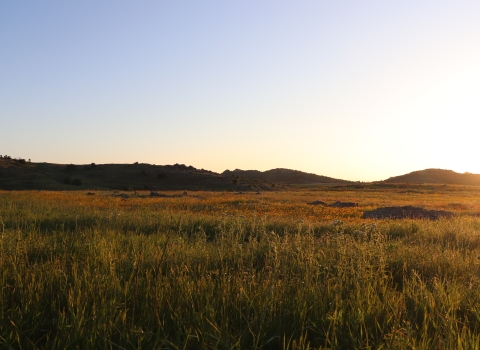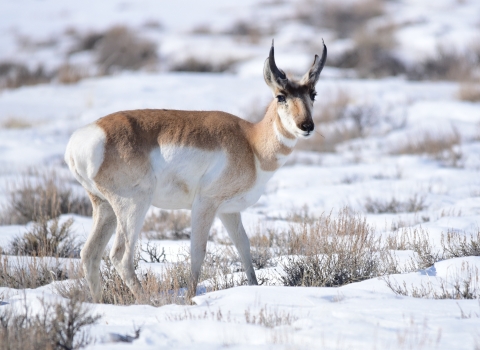Community members in five eastern North Carolina counties can enjoy more benefits of pocosin conservation and outdoor recreation opportunities, thanks to a land donation to the U.S. Fish and Wildlife Service.
The Nature Conservancy recently gave more than 1,700 acres to Pocosin Lakes National Wildlife Refuge. TNC bought the land from a willing landowner in the area and then donated the parcel to the refuge, stretching the Service’s conservation management responsibilities just a bit more. The Service routinely works with partner organizations, like TNC, private landowners, and others to conserve, protect, and enhance fish, wildlife, and plants and their habitats for the continuing benefit of the American people.
The donation creates a contiguous wildlife corridor wildlife corridor
To maintain healthy species populations and ecosystems, fish and wildlife need the freedom to move and migrate. As habitats and migration routes are affected by climate change and fragmented by roads, fences, energy development and other man-made barriers, wildlife struggle to reach necessary areas to feed, breed and find shelter. A wildlife corridor is a piece of undeveloped land connecting two habitats so wildlife can move safely between them.
Learn more about wildlife corridor and allows the Service to preserve the pocosin ecosystem. Pocosin, an Algonquin term which means “swamp on a hill,” is important for the environment and the community. The organic matter, made up of dried leaves and natural debris, accumulates over many years. To some it may look like dirty, messy muck, but it’s actually critical to people and wildlife.
Pocosin soils store water, which makes it a natural fire retardant and suppressant. If the soils dry out, underground fires may smolder for some time before being detected, and at that point the fire could be quite extensive and difficult to extinguish. The mucky matter also keeps carbon and other harmful natural gasses from entering the atmosphere. It acts like a sponge and can prevent flooding and soil erosion. Pocosin ecosystems make a perfect home for wildlife, including migratory birds and some threatened or endangered species, like the red wolf, red-cockaded woodpecker, and the northern long-eared bat. Pocosins also help create a healthy aquatic environment for freshwater fish. People benefit too.
Restoring pocosin wetlands has been a longstanding priority for the refuge staff. Pocosin Lakes National Wildlife Refuge includes one of the country’s largest wetland restoration projects, aimed at restoring natural hydrology to the pocosin peatlands found in coastal North Carolina. In 2023, the Service received $27.25 million through the Inflation Reduction Act, which will be invested throughout the Albemarle-Pamlico Estuary Complex, including Pocosin Lakes National Wildlife Refuge.
The estuary is home to some of the most climate vulnerable counties in the nation. The Albemarle-Pamilco community is particularly susceptible to sea level rise and changes in storm intensity and frequency. IRA-funded projects will help protect against catastrophic wildfire and elevation loss in drained carbon-rich peatlands; rising river levels and shoreline erosion; and saltwater intrusion.
“National wildlife refuges are a reflection of the community. We need to relate to the communities in which we reside and be a community asset,” said Will Meeks, U.S. Fish and Wildlife Service assistant regional director for refuges in the Southeast. “They are a place for community members to engage, recreate, and be proud of. Acquisitions are important and a reflection of the need that the environment provides for human health and well-being.”
The Pocosin refuge provides numerous recreational opportunities to visitors, including sightseeing, boating, biking, and hiking. The Walter B. Jones, Sr. Center for the Sounds in Columbia features interactive displays and stunning sunsets from the Scuppernong River Boardwalk. At the Pungo Unit, visitors may see black bear, wintering migratory waterfowl, and other wildlife. The refuge offers wildlife photography opportunities, especially in early mornings and late afternoons when wildlife is most active.
“We are extremely grateful for this generous donation, which helps us preserve this part of our community and allows more free opportunities for guests to enjoy the many outdoor activities the refuge has to offer,” said Wendy Stanton, refuge manager for Pocosin Lakes National Wildlife Refuge.



